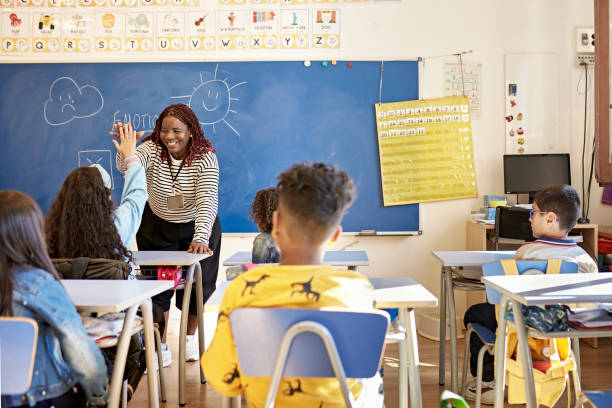My daddy’s initial teaching task was in a one-room schoolhouse on a reservation way out a dust roadway in northern The golden state in the very early 1930’s. He was responsible for teaching every one of the children from first quality via 8th quality in that one room. Besides teaching math, reading, and background at 8 different grade degrees, he also showed music, sports, and also drama-and was the manager, counselor, assistant, and custodian. Whether the youngsters were progressed for their age or required removal, anything they found out was instructed by him; he was their unique ed educator, their subject-matter as well as source specialist, and their gifted-and-talented advisor. I do not know how he did it all. By today’s criteria, such a task would certainly be thought about primitive, ineffective, frustrating, and almost difficult.
But from an instructor’s perspective, there is something tremendously appealing regarding a one-room schoolhouse: you are in complete control of the circumstance! As well as the all-encompassing nature of the job offers you a completely educated viewpoint: you recognize what the more youthful students are going to study when they get older, as well as you know what the older students worked on when they were younger. If you don’t feel your sixth-graders are properly planned for the rigors of seventh-grade math, you are not at the mercy of one more teacher’s presumed inexperience. All you have to do is talk to yourself, and then find a solution for it to prepare them effectively. You have the possibility to deal with surmountable troubles, arrange your ideas and sources, and also job until the problems have actually been solved to your fulfillment. Then if points do not turn out the means you want, you have only on your own responsible. As well as when points do go right, you are entitled to as well as obtain the praise. If there was ever before an occupation where “the-buck-stops-here,” teaching in a one-room schoolhouse was it.
Things are so various nowadays. Take a typical seventh-grade mathematics class for comparison. In a common intermediate school scenario, the math instructor is most likely to have just 3 classes to prepare for: sixth-grade math, seventh-grade math, and eighth-grade math. Without all those other subjects to prep, the seventh-grade mathematics instructor can be plainly concentrated one thing as well as something only: seventh-grade math criteria as well as material. The educator’s job-it is supposed-is to lead the class with all the chapters in guide, expose all the youngsters to all the ideas as well as skills, and also prepare them to do well on the inescapable standardized examination.
So it were that simple. Sadly, not all 7th quality students are in fact ready to discover seventh quality math. A few of them were shown by an additional mathematics teacher during the previous year, that didn’t prosper in having them master 6th quality concepts and also skills. Several of the sixth were instructed by the instructor that also educates seventh quality, but they were so badly prepared by the fifth grade classroom teachers that they really did not have full accessibility to the 6th quality educational program, as well as invested a major part of the sixth grade year fighting with restorative subjects. And some pupils moved into the institution district throughout their seventh grade year, coming from other districts where their education and learning was inadequate. And numerous have problem with English, which is not their native language, so they have trouble understanding directions, doing homework, and taking tests.
So the typical seventh quality mathematics instructor has to battle with teaching a combination of trainees who go to quality degree, over grade level, below grade degree, as well as much below quality level-all in the very same classroom. To put it simply, the math instructor is still working in a one-room schoolhouse! There are, obviously, some differences. In my daddy’s classroom, there were trainees of many ages working at a range of various math degrees. In the contemporary class, there are many students of the same age operating at a selection of different math levels. In the historic class, the instructor had really taught all the pupils year by year at the reduced levels of direction. In the modern course, the 7th quality teacher recognizes what the trainees must have discovered previously, but often has little straight experience in precisely how to develop those underlying lower degree concepts and skills when the demand develops with older pupils.
In the old-time schoolroom, it was not that tough to differentiate difficulty levels to fit specific levels of preparedness. Older trainees could momentarily participate with younger students to address a reduced degree math topic that was still difficult. Also, more youthful students might participate in with older pupils to examine subjects for which they were ready. And also although the students might be working on mathematics above or below the level believed suitable for their age, they can still be held liable for doing the classwork, the research, and also the tests-and get credit history for doing that work. In the modern-day mathematics course, trainees are in some cases provided therapeutic instruction by the math teacher within the whole-class setting, yet are not always supplied debt for the hard work they must do to catch up. They may be motivated to look for assistance, yet are not typically called for to do so.
In truth, pupils have really little possibility of mastering seventh grade web content if they have not currently understood the requirement principles and skills presented in the previous qualities. Yet in the egalitarian globe of American education and learning, students are generally offered a selection in a concern that is in fact a matter of need. Paradise assist the instructor if she ought to have the good sense to vary the demands for different pupils in the same class, as well as in fact need specific students to master critical therapeutic work. “No reasonable! Why need to I have to do what he doesn’t have to do?!” Envision the outrage of children and moms and dads at such unfair treatment-especially if a majority of the pupils requiring remediation are of the very same racial/ethnic background. Resolving the private requirements and finding out designs of low-achievers, as well as enhancing private opportunity through individual liability then becomes twisted into perceived bigotry.

